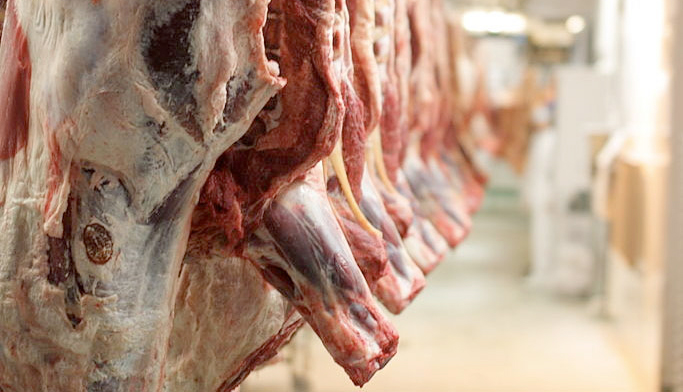
The government has been called on to end non-stun slaughter on the day of a Parliamentary debate on an e-petition.
The debate will take place in Westminster Hall at the Palace of Westminster at 4.30pm, Monday 23rd February 2015.
On 29th January BVA’s e-petition to end non-stun slaughter to promote animal welfare reached 100,000 signatures showing an enormous strength of feeling amongst the public. The total number of signatures has now reached more than 115,000.
The e-petition calls for an end to slaughter without pre-stunning for all animals, without exception.
BVA launched the Parliamentary e-petition because scientific evidence shows that slaughter without pre-stunning allows animals to feel pain and compromises animal welfare. This scientific evidence includes the EU-funded Dialrel project that ran for four years between 2006 and 2010 and that concluded “It can be stated with high probability that animals feel pain during and after the throat cut without prior stunning.” It is a position supported by the Humane Slaughter Association, the Farm Animal Welfare Council, and the Federation of Veterinarians of Europe.
BVA notes that more than 80% of Halal meat is stunned before slaughter. BVA’s concern does not relate to religious belief but to the animal welfare compromise of non-stun slaughter.
Commenting, BVA President John Blackwell said: “BVA’s e-petition to end non-stun slaughter now has over 115,000 signatures and clearly shows the strength of feeling about animal welfare at slaughter. BVA has long argued that all animals should be stunned before slaughter to render them insensible to pain and we are pleased that the British public has got so firmly behind our campaign, which is based on scientific evidence.
“For BVA and our members, this is a matter of animal welfare at slaughter, plain and simple. We have never – nor would we – argue against religious slaughter. We categorically refute any suggestion that this is an anti-Muslim or anti-Jewish campaign. We acknowledge that over 80% of animals slaughtered for halal meat are pre-stunned before slaughter. We have met with, and are keen to continue our positive discussions with, representatives of the halal and kosher meat industry to explore where we can work together to improve animal welfare at slaughter.
“BVA finds abuse of animals in any slaughterhouses unacceptable. We would expect for these abuses to be thoroughly investigated and appropriate action taken by the competent authority. We also point out that recent undercover films of animal abuse in slaughterhouses would warrant sanctions under current welfare legislation irrespective of whether they occurred in an abattoir implementing stunning or non-stun prior to slaughter.
“From pre-birth to slaughter, vets play an active role in not only preventing suffering but actively providing for the welfare needs of all animals. The veterinary profession is not complacent. We consistently lobby Government to ensure existing legislation is enforced effectively. We have and will always work to improve the welfare of animals at all stages of their lifecycle.
“BVA is calling on the Government to have a consistent approach to animal welfare legislation. How can the Government on the one hand pride itself and champion the UK on having some of the world’s highest animal welfare standards, but on the other undermine this by allowing slaughter without stunning to continue? It is clear from the scientific evidence that the welfare of animals is improved by effective stunning at slaughter but we can’t enforce a piece of legislation that does not exist. This is why we call on the Government to make legislative change now and end non stun-slaughter immediately.”
Ronnie Soutar, President of the BVA Scottish Branch, said: “Concern about welfare of animals at slaughter is one of the top priorities for our members and we have long advocated an end to non-stun slaughter. Although very little non-stun slaughter takes place in Scotland that is no assurance that non-stun products aren’t on Scottish supermarket shelves or sold in food outlets.
“We are hoping to gain cross-party support for our campaign from the main parties in Scotland because this is not only a major animal welfare issue but one of consumer choice and confidence in the food chain.”
